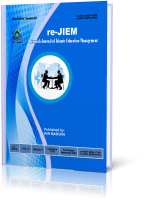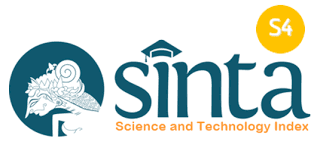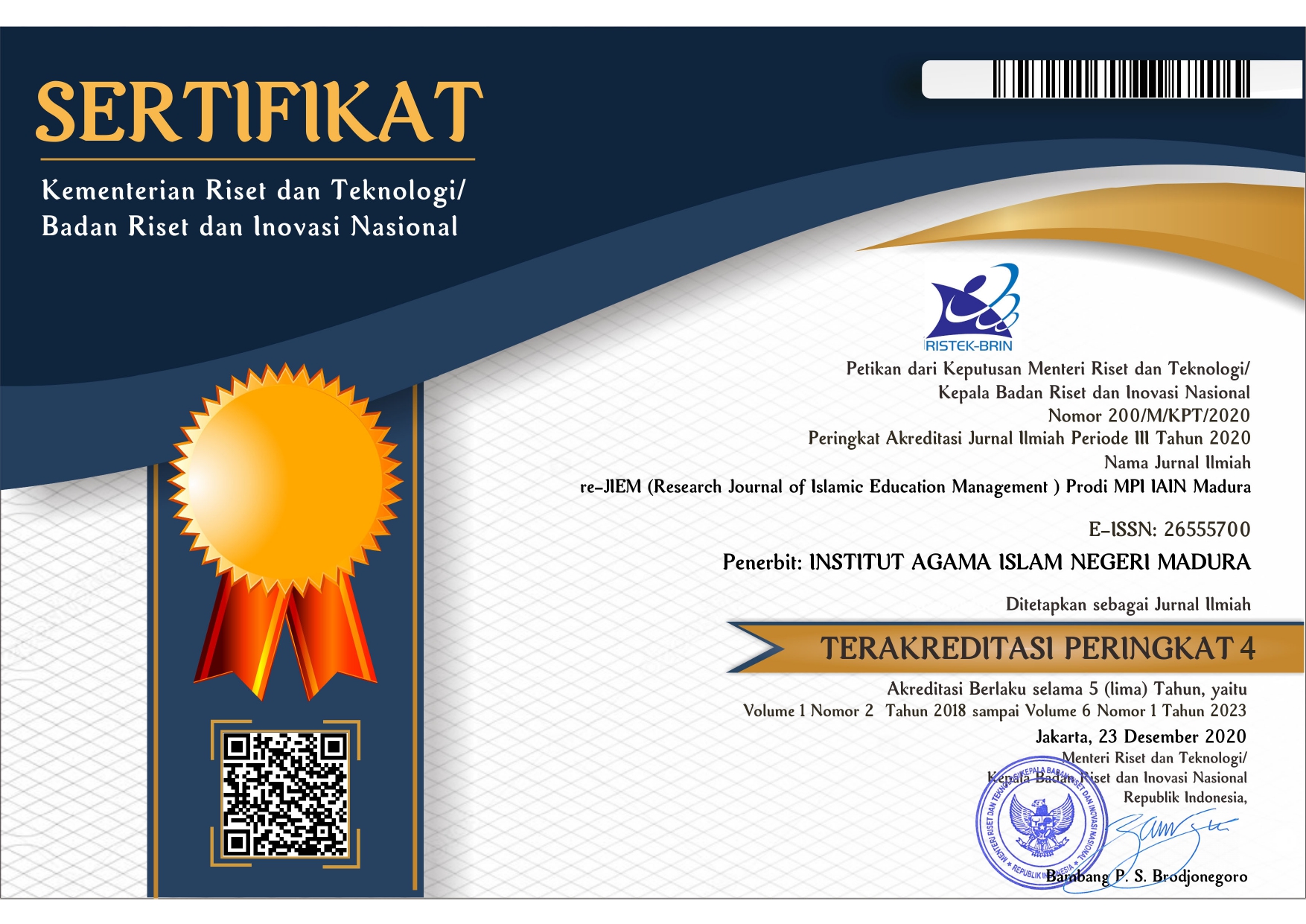PENINGKATAN MUTU SANTRI MELALUI IMPLEMENTASI INOVASI PROGRAM EKSTRAKURIKULER PESANTREN
 Abstract views: 663
,
Abstract views: 663
,
 PDF downloads: 453
PDF downloads: 453
Abstract
Currently, there is a general view in the community that pesantren education does not only focus on being an institution for the study of Islamic knowledge, but must also be able to improve the existence of the quality of students through the development of programs outside of religion. One of these efforts is through the implementation of innovative pesantren extracurricular programs. This study aims to investigate implementation of extracurricular program innovations in improving the quality students in pesantren. This research is a literature study conducted with a qualitative approach. The sources and types of data used are secondary data in the form of scientific journals, books, skripsi and theses. There are findings that pesantren, in improving the quality their institutions, can reform through a variety extracurricular activities. Urgency improving quality students as a form of developing interests and talents, maintaining the mentality students in the pesantren and forming the identity students. The sustainability of extracurricular innovations is seen from vertical factors in the form of kyai leadership determining policies in pesantren and horizontal factors with regard to causes that intersect directly with students such as: coach strategies, support from fellow students, parents and collegiate, extracurricular SOP, availability of coaches, and support for facilities and infrastructure. Extracurricular program innovation by paying attention to the relevance of the times and the benefits obtained by students. Existence of extracurricular innovations produces graduates who are able to combine religious knowledge with general knowledge in accordance with the new times and the needs of society.
Downloads
References
Aini, Ummul, Deswalantri, Alimir, and Jasmienti. “Pengaruh Kegiatan Kepramukaan Terhadap Akhlak Santri Dan Santriwati Pondok Pesantren Adlaniyah Di Jorong Tampus Kecamatan Lembah Melintang Kabupaten Pasaman Barat.” KOLONI: Jurnal Multidisplin Ilmu 1, no. 3 (2022): 431–40.
Ajami, Nuha. “Peranan Ekstrakurikuler Al-Mukasyafah Dalam Meningkatkan MInat Menulis Santri Pondok Pesantren Riyadlatul ’Ulum Batanghari Kabupaten Lampung Timur Tahun Pelajaran 2020/2021.” Institut Agama Islam Negri Metro Lampung, 2020.
Ananda, Rusydi, Amiruddin, and Muhammad Rifa’i. Inovasi Pendidikan Melejitkan Potensi Teknologi Dan Inovasi Pendidikan. Medan: CV. Widya Puspita, 2017.
Anwar, Rahma Nuriyal. “Profesionalisme Kiai Dalam Pengelolaan Pondok Pesantren Dalam Konteks Kemodernan.” Jurnal Pendidikan Islam Indonesia 2, no. 2 (2018): 178. https://doi.org/10.35316/jpii.v2i2.73.
Arikunto, Suharsimi. Prosedur Penelitian Suatu Pendekatan Praktek. Jakarta: PT. Rineka Cipta, 2010.
As’ari, Arya Hasan. “Implementasi Pendidikan Nasionalisme Melalui Kegiatan Ekstrakurikuler.” IAIN Salatiga, 2019.
Badrudin. Manajemen Peserta Didik. Jakarta: Indeks, 2014.
Blândul, Valentin Cosmin. “Inovation in Education – Fundamental Request of Knowledge Society.” Procedia - Social and Behavioral Sciences 180, no. November 2014 (2015): 484–88. https://doi.org/10.1016/j.sbspro.2015.02.148.
Darmadi, Hamid. Pengantar Pendidikan Era Globalisasi Konsep Dasar, Teori, Strategi Dan Implementasi Dalam Pendidikan Globalisasi. Bandung: ANIMAGE, 2019.
Haryanto, Budi, and Istikomah. Manajemen Mutu Pendidikan Islam. Sidoarjo: UMSIDA Press, 2020.
Hidayatullah, Fahmi. “AN-NUR II ‘AL-MURTADLO’ BERBASIS EKSTRAKURIKULER DALAM MENGEMBANGKAN KEWIRAUSAHAAN SANTRI.” Jurnal Studi, Sosial Dan Ekonomi 2, no. 2 (2021): 197–211.
Huda, Sholeh, and Adiyono Adiyono. “Inovasi Pemgembangan Kurikulum Pendidikan Pesantren Di Era Digital.” ENTINAS: Jurnal Pendidikan Dan Teknologi Pembelajaran 1, no. 2 (2023): 371–87.
Ila Fakiha. “Pemberdayaan Santri Dalam Menghadapi Era Digital (Studi Kasus Di Pondok Pesantren Sunan Drajat Lamongan).” Universitas Muhammadiyah Malang, 2021.
Jannah, Masfuriyatul. “Peranan Pondok Pesantren Darul A’mal Dalam Perubahan Sosial Warga Metro Barat.” Institut Agama Islam Negeri Metro Lampung, 2020.
Lestari, Nabella, and Agus Ali. “Strategi Pembinaan Karakter Pada Santri Malalui Ekstrakurikuler Pramuka Di Pondok Pesantren Darussalam Bogor.” Tadbiruna: Jurnal Manajemen Pendidikan Islam 2, no. 1 (2022): 51–61. https://doi.org/10.51192/tadbiruna.v2i1.366.
Ma’ruf, Ahamad Husen. “Upaya Peningkatan Mutu Pendidikan Pesantren Tradisional Di Era Millenial.” Darajat: Jurnal PAI 5, no. 1 (2022): 1–23.
Mahmud, Marzuki. Manajemen Mutu Perguruan Tinggi. Jakarta: PT. Raja Grafindo Persada, 2012.
Majid, Sholahuddin, Syamsuddin RS, and Moch Fakhruroji. “Manajemen Strategi Pesantren Dalam Mengembangkan Bakat Dan Minat Santri.” Tadbir: Jurnal Manajemen Dakwah 3, no. 1 (2018): 67–83.
Mubah, Hilmi Qosim. Manajemen Pesantren Dan Pendidikan Luar Sekolah. Pamekasan: iainmadura press, 2019.
Mujtabarrizza, Muhammad. “MENILAI PERAN KEPEMIMPINAN KYAI DALAM PENGEMBANGAN SANTRI.” Atthiflah: Journal Of Early CHildhood Islamic Education 10, no. 1 (2023): 71–79.
Priyono. Pengantar Manajemen. Sidoarjo: Penerbit Zifatama Publisher, 2007.
Redaksi, Tim. Kamus Besar Bahasa Indonesia Pusat Bahasa, Kamus Besar Bahasa Indonesia. Jakarta: PT Gramedia Pustaka Utama, 2008.
Rosida, Nala, and Zaenal Arifin. “KORELASI ANTARA EKSTRAKURIKULER DENGAN PENGEMBANGAN POTENSI SANTRI PUTRI AL MAHRUSIYAH I KEDIRI, JAWA TIMUR.” Jurnal Ilmiah DIDAKTIKA 20, no. 2 (2020): 238–50.
Rozi, Fathor, and Uswatun Hasanah. “Nilai-Nilai Pendidikan Karakter; Penguatan Berbasis Kegiatan Ekstrakurikuler Pramuka Di Pesantren.” Manazhim: Jurnal Manajemen Dan Ilmu Pendidikan 3, no. 1 (2021): 110–26. https://doi.org/10.36088/manazhim.v3i1.1075.
Rusdiana, H.A. Konsep Inovasi Pendidikan. Bandung: CV. Pustaka Setia, 2014.
Saat, Sulaiman, and Sitti Mania. Pengantar Metodologi Penelitian Panduan Bagi Peneliti Pemula. Gowa: Pusaka Almaida, 2020.
Saptudi. “Pengembangan Kegiatan Ekstrakurikuler Di Pondok Pesantren Hidayatul Insan Fii Ta’limiddin Palangka Raya.” IAIN PALANGKA RAYA, 2019.
Sauri, Sofyan, Sandie Gunara, and Febbry Cipta. “Establishing the Identity of Insan Kamil Generation through Music Learning Activities in Pesantren.” Heliyon 8, no. 7 (2022): e09958. https://doi.org/10.1016/j.heliyon.2022.e09958.
Shofiyuddin, Moch, and Tatik Swandari. “Strategi Pengasuh Pondok Pesantren Dalam Pengembangan Ekonomi Mandiri Santripreneur.” Review of Islamic Education 1, no. 1 (2021): 10–24.
Sri Redjeki, Dwi Prawani, and Jefri Heridiansyah. “Memahami Sebuah Konsep Integritas.” Jurnal Stie Semarang 5 (2013): 1–14.
Sufyanah, Bardatus. “Konsep Dasar Kepemimpinan.” INTIZAM: Jurnal Manajemen Pendidikan Islam 7, no. 1 (2023): 1–14.
Sugiarti, Rusmini, Marina Dwi Mayangsari, and Rahmi Fauzia. “Hubungan Antara Iklim Sekolah Dengan Motivasi Berprestasi Pada Santri Di Pondok Pesantren Darussalam Martapura.” Jurnal Kognisia 3, no. 1 (2020): 125–30.
Tamlihah, Tamlihah, Abd. Mukhid, and Hilmi Qosim Mubah. “Implementasi Manajemen Kurikulum Pesantren Dalam Membentuk Karakter Mandiri Santri Di Pondok Pesantren Nurus Sibyan Ambat Tlanakan Pamekasan.” Re-JIEM (Research Journal of Islamic Education Management) 3, no. 1 (2020): 96. https://doi.org/10.19105/re-jiem.v3i1.2957.
Ulum, Nuzzulul. “KOLABORASI MODEL SALAFI DAN KHALAFI DALAM PENDIDIKAN PESANTREN DAN IMPLIKASINYA TERHADAP UPAYA PENINGKATAN MUTU SANTRI DI PONDOK PESANTREN DARUL HIKAM KERTONEGORO JENGGAWAH JEMBER.” Al-Ashr: Jurnal Pendidikan Dan Pembelajaran Dasar 4, no. 2 (2019): 165–86.
Ulum, Saiful. “Peran Kegiatan Ekstrakurikuler Terhadap Peningkatan Bakat Santri Pondok Pesantren Lirboyo Kediri.” Institut Agama Isalam Tribakti Kediri, 2022.
Wibowo. Manajemen Perubahan: Edisi Ketiga. Jakarta: PT. Raja Grafindo Persada, 2016.
Winarno, M.E. Metodologi Penelitian Dalam Pendidikan Jasmani. Malang: UM Press, 2011.
Copyright (c) 2023 Bardatus Sufyanah, Hilmi Qosim Mubah, Badrus Soleh , Kacung Wahyudi

This work is licensed under a Creative Commons Attribution-ShareAlike 4.0 International License.
Authors who publish with this journal agree to the following terms:
Authors retain copyright and grant the journal right of first publication with the work simultaneously licensed under a Creative Commons Attribution-ShareAlike 4.0 International License that allows others to copy and redistribute the material in any medium or format with an acknowledgment of the work's authorship and initial publication in this journal and also allows to remix, transform, and build upon the material for any purpose, even commercially with contributions under the same license as the original.
Authors are able to enter into separate, additional contractual arrangements for the non-exclusive distribution of the journal's published version of the work (e.g., post it to an institutional repository or publish it in a book), with an acknowledgment of its initial publication in this journal.
Authors are permitted and encouraged to post their work online (e.g., in institutional repositories or on their website) prior to and during the submission process, as it can lead to productive exchanges, as well as earlier and greater citation of published work.



























